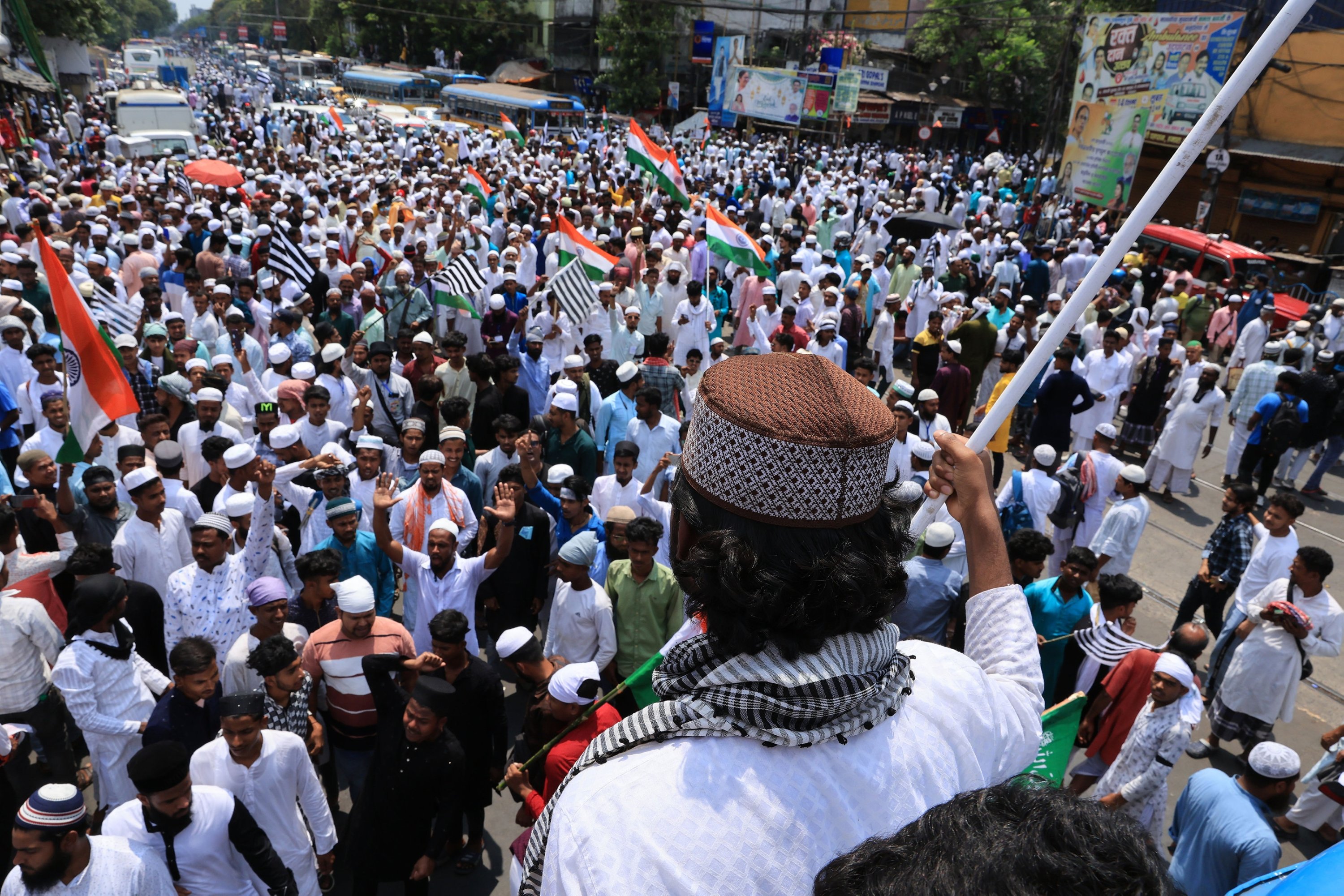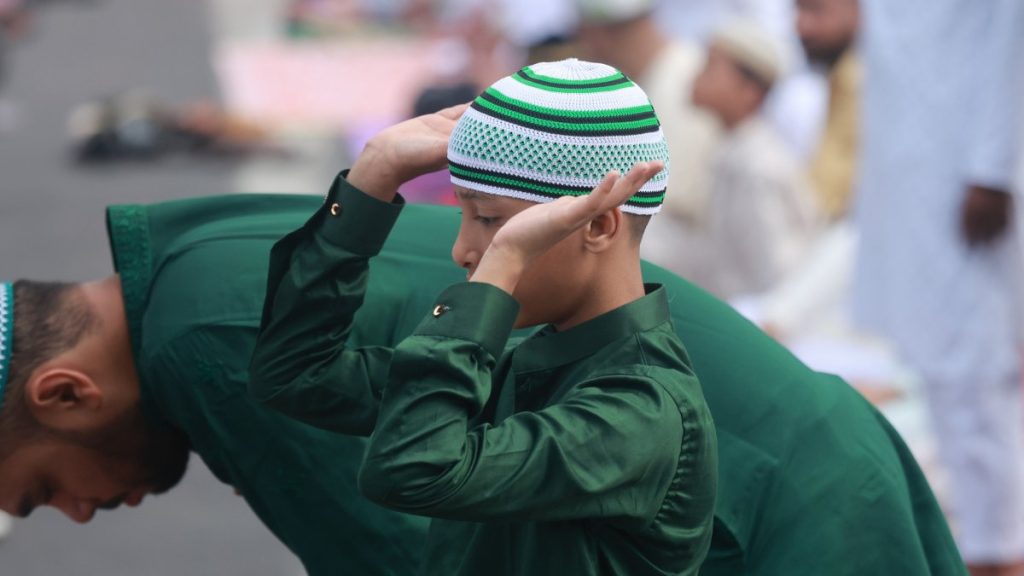Indian President Droupadi Murmu signed the controversial Waqf (Amendment) Bill, which will be enforced as law from April 8, 2025. This bill gives the government more power over the waqf (charitable trust) properties, which have been donated by Muslims for centuries and are now worth billions of dollars.
This new legislation is introduced to end the mismanagement and corruption in handling the trust properties. However, it can’t be seen as a case in isolation. Rather, it is yet another manifestation of the systematic campaign of marginalizing minorities, especially Muslims, and the institutionalization of the Hindutva ideology in India, by the far-right Bhartiya Janata Party (BJP) of Prime Minister Narendra Modi.
Waqf properties in Islamic tradition are the movable or immovable properties that Muslims donate in the name of God for charity or donation, which are non-transferable and are used for serving the community. India has the largest collection of waqf properties in the world, and within the country, waqf lands constitute the third-largest landholding, after the Indian Army and the railways. Historically, they were governed by the State Waqf Boards, consisting of nominated members by the government and a few elected members, but all Muslims, under the 1954 law. Later on, several amendments were introduced, and lately these properties were governed under the Waqf Act 1995, which gave more control to the State Waqf Boards and mandated the establishment of Waqf Tribunals, which were independent of civil courts’ jurisdiction to settle any disputes.
Muslims’ usurped rights
Now, the BJP has managed to pass the new Waqf (Amendment) Bill, which has been opposed significantly not only by the indigenous Muslim groups but also by centrist and left-wing parties like Congress, the Aam Aadmi Party, the Communist Party of India and others. Opposition leaders from the Sikh majority state of Punjab, including Shiromani Akali Dal (SAD) leader Harsimrat Kaur Badal and Congress leader Amarinder Singh Raja, showed strong dissent against the Waqf Bill, expressing concerns that tomorrow the Modi government might bring amendments to the Gurdwara Act 1925, affecting Sikh religious affairs. Despite the bill becoming law, different stakeholders have petitioned against it in the Supreme Court of India.
The new amendments will allow non-Muslims to be part of the Waqf Board and even head it, which is contradictory to Muslim traditions. Other religions in India are protected by law that the head of the religious charitable organization may only belong to the respective religion. The government may manipulate this provision to nominate a majority of the Waqf Board members as non-Muslims. Further, these changes will allow the civil courts to listen and make a final decision in case of any dispute settled by the Waqf Tribunals.
Another amendment that will seriously affect waqf properties is the need to produce formal documents. Since these properties have been in use for decades or even centuries, formal documentation may not be available. Thousands of dargahs (shrines), masjids (mosques), orphanages, community schools and madrassas (religious schools) may lose ownership of the land.

Long list of contradictions
These waqf properties have been mismanaged and encroached on by the state authorities even under the current law. The far-right government of the State of Madhya Pradesh, under the umbrella of PM Modi’s central government, has already destroyed Ujjain waqf properties and cleared them for a so-called Mahakal Corridor, a $1 billion government project surrounding the famous Mahakaleshwar Temple, preparing for Kumbh 2028, a Hindu pilgrimage held every 12 years.
According to different analysts, irregularities in the government records are also deliberate, and the records have not been updated to make encroachments into waqf properties. The surveys conducted by State Waqf Boards and the government revenue department are in contradiction because the revenue departments have outdated surveys, mostly from the pre-independence era. Despite the 1954 law making it mandatory to conduct surveys, the revenue department never conducted one.
Moreover, when the digitization of records was started, the software only had two categories for tagging the properties as “Private” or “Government.” In the process, the revenue department tagged all Waqf properties as owned by the government, thus contradicting the Waqf record. For example, in the same Madhya Pradesh state, Ujjain had 1,014 waqf properties as per the 1985 gazette of the surveys conducted by the Waqf board, but none of them are listed as waqf assets in revenue records. These administrative lapses might not be isolated oversights but a part of a broader ideological and political strategy of the BJP’s Hindutva ideology.
BJP’s targets
The BJP had three tenets of the manifestation of its Hindutva Ideology, including reclaiming the Hindus’ sacred places, stripping down the special status of the disputed Jammu and Kashmir state and the introduction of Uniform Civil Code in India. Let’s analyze the policies of the BJP since it secured a simple majority in the center for the first time in 2014. It has systematically marginalized the minorities, especially Muslims, adhering to the above-mentioned three goals. The Babri Masjid was already demolished under government patronage in 1992 under the leadership of Vajpayee and L. K Advani, while the Ram temple is being built on it. Revocation of Article 370 of disputed Jammu and Kashmir was achieved in 2019, resulting in awarding thousands of domiciles to non-Kashmiri-non-Muslims to deliberately change the demography of the disputed region in favor of Hindus.
After achieving two main goals, BJP has taken several steps like introduction of Citizenship Amendment bill (2019), targeting Muslim personal laws in guise of introduction of uniform civil code, criminalizing triple talaq, distorting Muslim history by renaming places e.g Allahabad to Prayagraj, excluding references to Muslim heroes in the textbooks, mob lynching of Muslims by cow vigilantes, frequent riots against Muslims and inaction of the governments against the preparators. The use of Unlawful Activities Prevention Act and other discriminatory laws against Muslims and the exclusions of Muslim legislators from Parliament also depict the systematic strategy of the BJP, as no BJP Muslim legislator was elected to the Lok Sabha (lower house of Parliament) in the last three elections i.e., 2014, 2019 and 2024.
In conclusion, the Waqf law is not merely a piece of some ordinary decree but aimed at forwarding the ideological and political agenda of Hindutva through legislation. It is another step in redefining and degrading the status of Muslims. It will surely damage the so-called secular fabric of India, intimidating other minorities in the near future as well.


